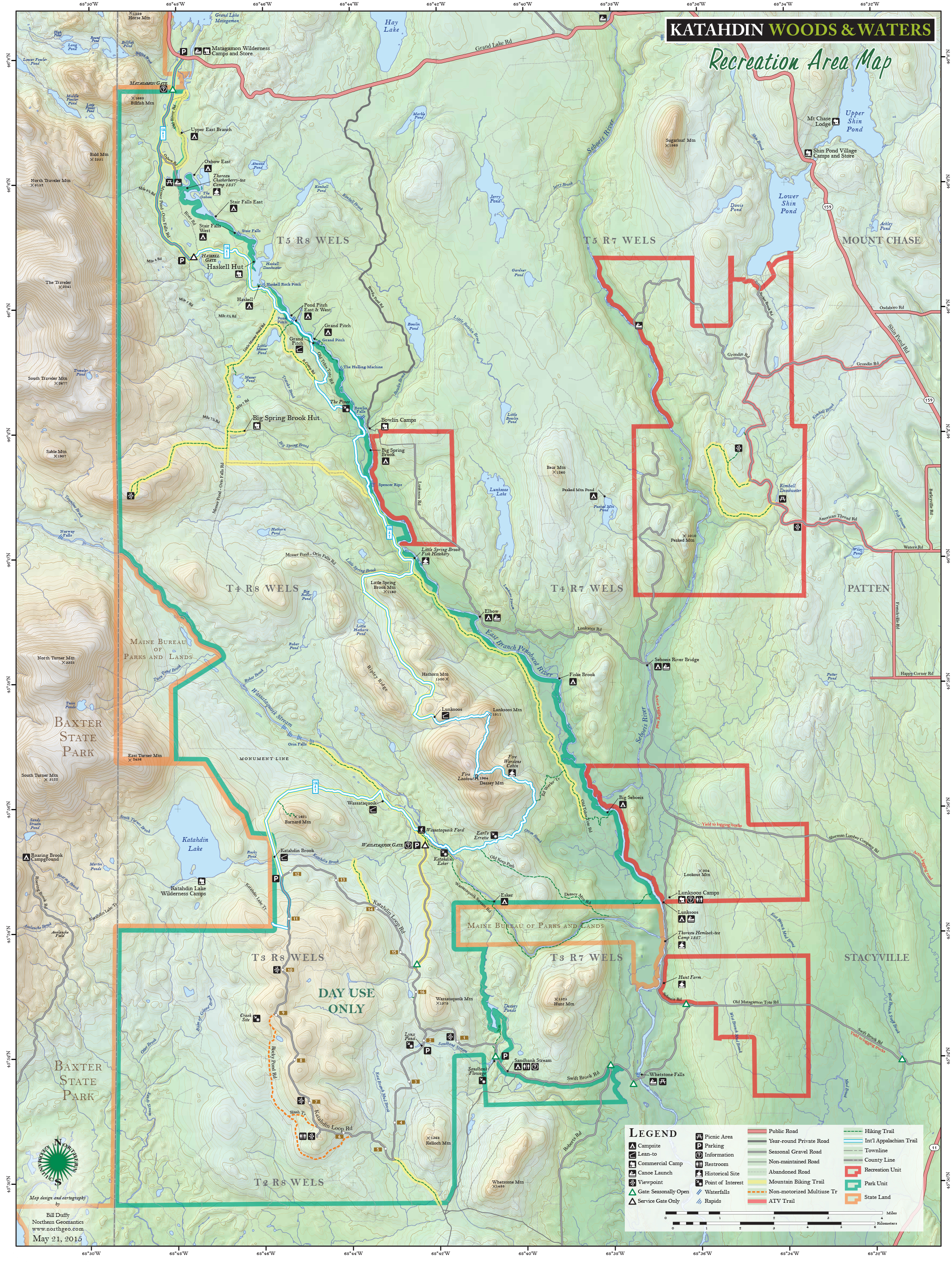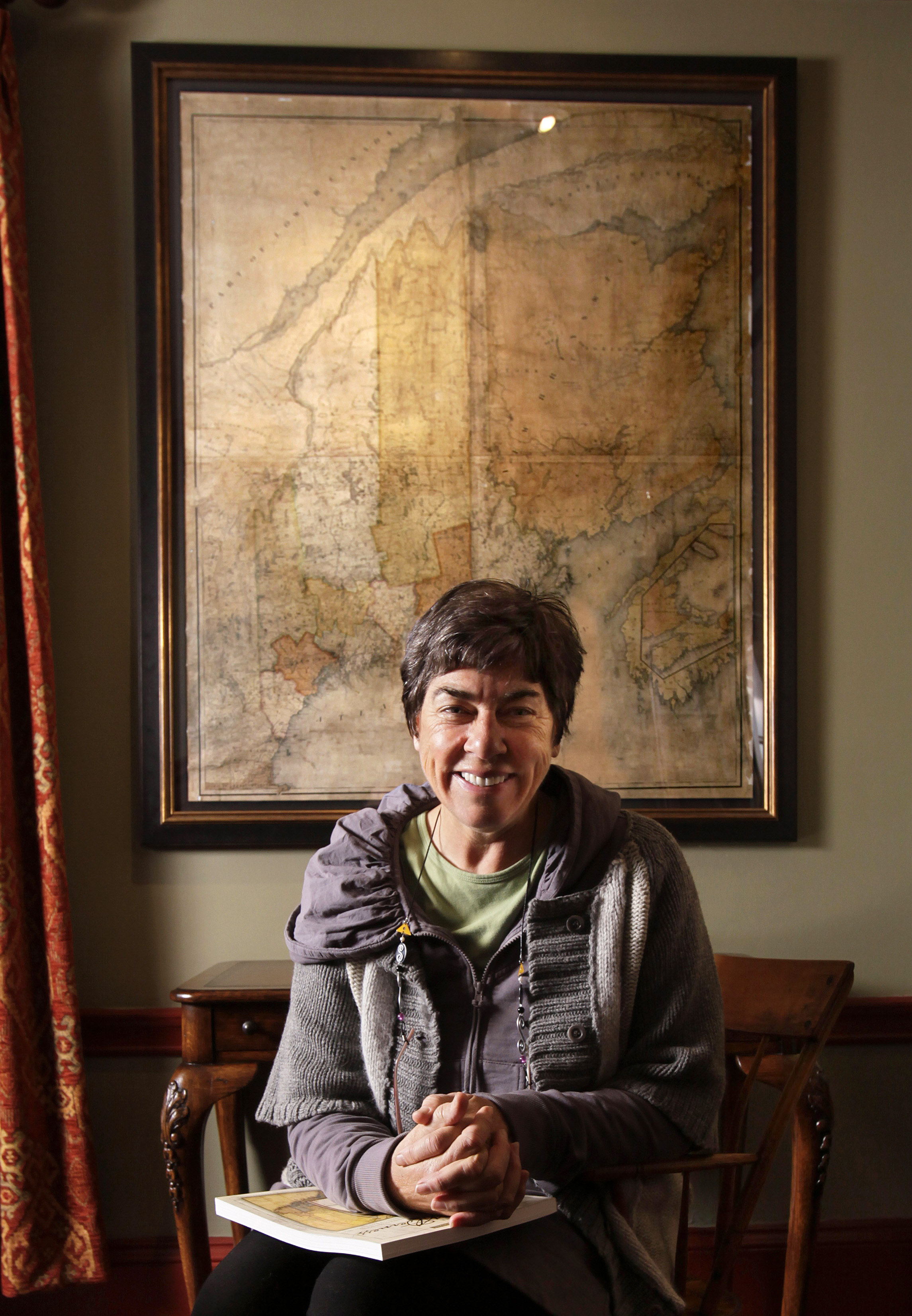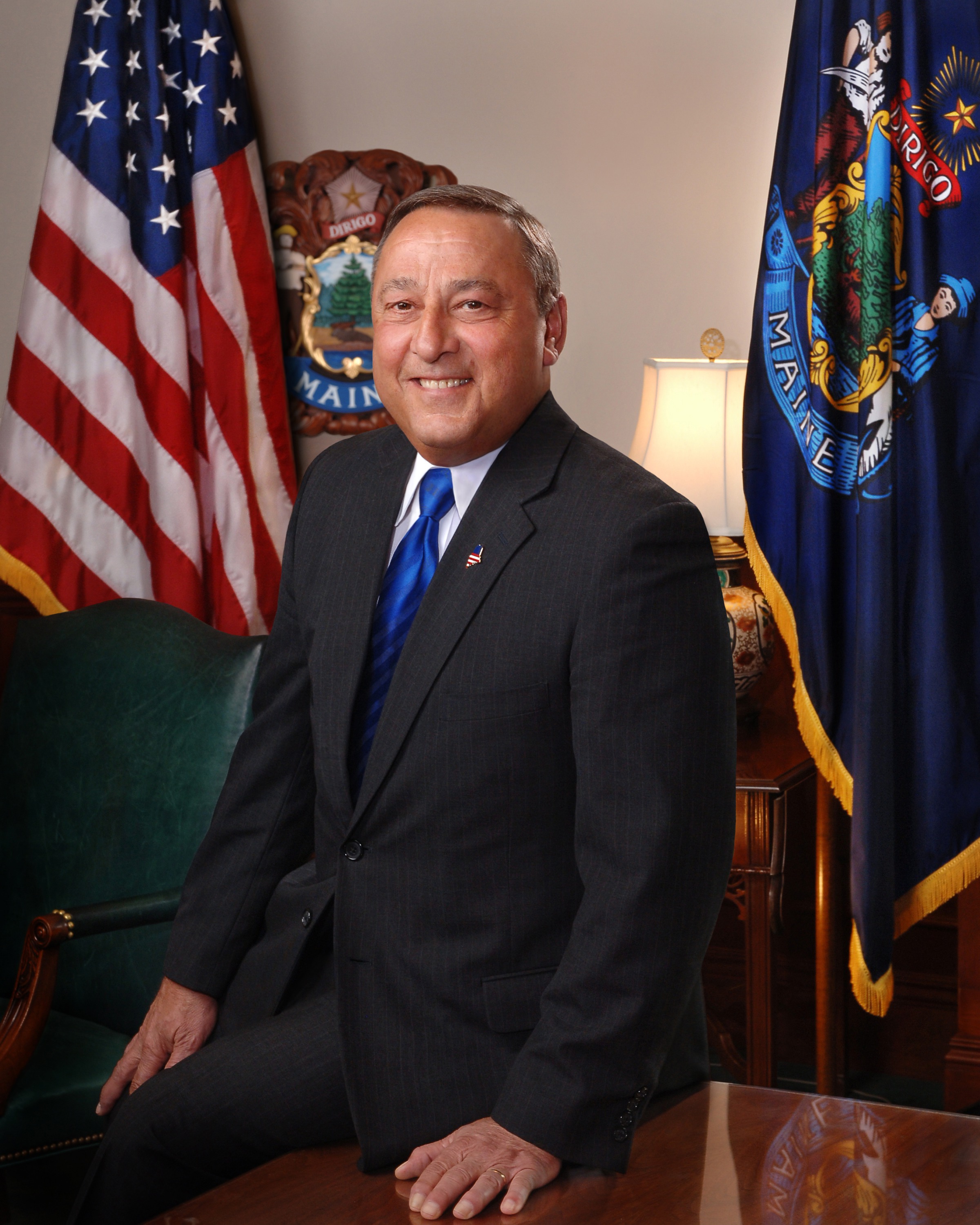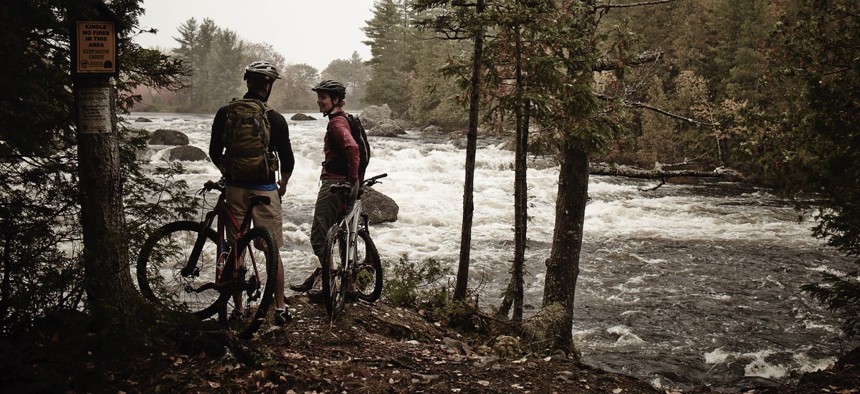Connecting state and local government leaders
Debate over the North Woods Park proposal has raised federalism issues.
BANGOR, Maine — Drive 70 minutes south from this city’s airport and you’ll arrive in Bar Harbor, gateway to one of Maine’s principal attractions—Acadia National Park. This year, some 2.5 million tourists have visited the park and spent millions of dollars in adjacent towns: Bar Harbor, Northeast Harbor and Southwest Harbor.
Drive 100 minutes north and you will find Baxter State Park, site of the famed Mount Katahdin, northern terminus of the Appalachian Trail. Only about 65,000 people visited Baxter this year, so tourism revenue was scarce in the nearby towns of Millinocket, East Millinocket and Medway.
While Bar Harbor prospers, these northern towns have been withering away as mainstay forest products companies shutter their mills.
Could a new national park next to Baxter help to revive the Millinockets? Proponents think so, and they’ve mounted a major drive this summer to overcome resistance from those who cling both to the hope of reviving forestry operations and to their freedom to use the woods for snowmobiling, hunting, fishing and more.
But Maine’s Republican governor, Paul LePage, sides with the opposition. In a letter to President Obama in April, he cast the issue as one of federalism: rejecting the idea of “ceding” thousands of acres to federal control and saying the national park would not be welcome in Maine so long as he is governor.
The Maine congressional delegation, meanwhile, is mostly on the fence about the proposal to create a 150,000-acre national park and recreation area —variously called the North Woods Park and the Katahdin Woods and Waters Park and Recreation Area.

No Mill in ’Ocket
Despite gloomy weather one Saturday in late July, about 15 volunteers turned out to refurbish Millinocket’s Hillcrest Park. They contoured land and planted shrubs and trees, lending their efforts to help the town regain some of its pride of place.
Helping to lead the park revitalization, reported the Bangor Daily News , was 25-year-old Amy Collingsworth, founder of a Facebook group with nearly 1,000 members whose name bespeaks Millinocket’s challenge: There Ain’t No ‘Mill’ In Ocket .
The last of the great paper mills that had sustained this area for nearly 100 years closed its doors last year. It has been a bitter road, from paper-based prosperity years ago to unemployment now at about 11 percent—far above the statewide average of 4.5 percent.
Chronicling the town’s decline in a series a year ago, the Portland Press Herald reported:
Millinocket’s population peaked at more than 7,700 residents in the 1960s and 1970s (not including East Millinocket, which had a population of 2,567 in 1970), according to the U.S. Census Bureau. The towns had the highest manufacturing wages in the state. In 1973, average annual gross manufacturing wages in the Millinockets were $11,951 (roughly $64,000 in today’s dollars) compared to a state average of $7,050 (nearly $38,000 in today’s dollars).
The Millinocket and East Millinocket mills produced newsprint for some of the largest newspapers on the East Coast, including The New York Times. It produced paper for once-ubiquitous phone books and catalogs. The people of Millinocket could boast that on any given day, a majority of the people on the East Coast held Millinocket-made paper in their hands.
The Great Northern Paper Co. went bankrupt in 2003, but the mill in East Millinocket restarted under new, private-equity ownership, providing some 250 manufacturing jobs. A minor boom occurred in 2012, when the mill produced nearly 3,000 tons of paper to meet massive demand for the “Fifty Shades of Gray” trilogy, which was printed on Great Northern Baxter Brite paper.
Declining employment in the past five years has further reduced opportunities, and population, in the region since an already-depressing picture painted by the 2010 federal census. That survey put the combined population of the two Millinockets at 6,229, a decline of roughly 40 percent since 1970.
To assess the economic fallout of major closures in Penobscot, Pisctaquis, Hancock and Waldo counties, the Bangor-based Eastern Maine Development Corporation last summer commissioned a study by Camoin Associates. The study covered not only the Great Northern Paper closure but also those anticipated (and since realized) at other paper and pulp mills, including Verso Paper Co.’s sizeable Bucksport Plant and closure of a large United Technologies Corp. electrical equipment manufacturing plant in Pittsfield—located in Somerset County but drawing most of its employees from the four other counties. Hundreds of well-paying jobs disappeared, including more than 200 in East Millinocket, about the same in Bucksport and just under 300 in Pittsfield.
The Camoin Associates study put the number of jobs directly lost to these closures at 1,517 and earnings lost at $120.4 million. Jobs lost by entities serving the plants totaled 1,716, the study said, costing another $63.7 million in earnings. Economic output obviously would decline—by nearly $1 billion, according to the study. The closures account for nearly 20 percent of manufacturing jobs in the region.
A New National Park?
“This mill town needs something to happen,” Bangor Daily News reporter Kevin Williams, declared in a May 30 story from Millinocket.
And he was right, for morale-boosting efforts like the Hillsdale Park renovation can only go so far.
There are few big ideas on the horizon, with the exception of the proposal to establish a new National Park in the region.

The idea has been circulating—and generating controversy—for years. Its principal promoter has been Roxanne Quimby, the colorful co-founder of Burt’s Bees, who parlayed a beeswax candle-making business into a worldwide brand selling lip balm and other personal care products.
With her profits, she began buying land that the big timber and paper companies were starting to sell in the 1990s and proposing she would donate her holdings, now about 100,000 acres, as the core of a new national park. There’s precedent for such gifts in Maine: the Rockefeller family many years ago donated a lot of land, and built carriage roads and bridges, that are at the heart of Acadia National Park.
Early in the history of the North Woods park idea, proponents wanted the government to take over 3.2 million acres. That provoked strong opposition from forest products and recreational interests.
Today the proposal is more modest: 75,000 acres of national park and 75,000 of national recreation area. The holdings would adjoin the 200,000-acre Baxter State Park. The effort is now led by Quimby’s son, Lucas St. Clair, who is less abrasive and more media-savvy than his mother but equally committed to her conservation goals. With economic studies and public opinion surveys, St. Clair and his family’s foundation, Elliotsville Plantation, Inc., have been working to sway opinion among the public and their representatives at the local, state and federal levels.
An economic study commissioned by Elliotsville Plantation and released in early 2013 concluded that the park and recreation area plan could produce more than 1,000 jobs over time as tourism grew. If the new park were to draw just 15 percent of Acadia’s visitor count, that would create about 450 jobs, the study said.
In 2013 too, Quimby and St. Clair unveiled what they call the Katahdin Woods & Waters Recreation Area on the acreage they own. They have installed picnic tables and campsites, a vault toilet and made significant improvements to trails and roads allowing for greater access. Two “ambassadors” guide visitors and make continual improvements on the property. A website describes the area and the many outdoor activities it offers.
As part of their appeal, Quimby and St. Clair have proposed a $40 million endowment. They would contribute half and work to raise the rest from other sources.
Opposing Sides
David Farmer, spokesman for Elliotsville Plantation, notes that the Bangor City Council, the Katahdin Region Chamber of Commerce and more than 200 individual businesses in the region have endorsed the initiative. The Natural Resources Council of Maine and The Wilderness Society are also behind it. And the Portland Press Herald , Kennebec Journa l and Morning Sentinel newspapers, all owned by MaineToday media, endorsed the plan in an editorial this June.
The public in the north woods seems to be in favor as well. A poll of Maine’s 2nd Congressional District, where the park and recreation area would be located, found that 67 percent of voters across the sprawling district support the proposal, while 25 percent are opposed. The survey was commissioned by Elliotsville Plantation and released in early June.
But polling in two of the towns adjacent from the park has shown continuing skepticism by people whose livelihoods have so long depended not on tourism but on timbering and paper manufacturing. In late June, a straw poll in East Millinocket went against the park by a 320-191 margin. A poll in Medway produced a 252-102 thumbs-down verdict.
The votes reflect nostalgia for a way of life that was sweet but is no longer possible, says one man whose family raised him in the region. For generations, Great Northern Paper Co. was a paternalistic employer supporting housing for its workers, allowing them to build camps along the beautiful rivers that transported logs to mills downstream and providing first-class community services. But as Northern Paper and other companies began to sell off their land during the past 15 years, the opportunity for dirt-cheap leases along the rivers disappeared, and a lifestyle began to wither.
Nostalgia for these golden times, and the hope that well-paying jobs in the forest products industry might return, probably underlie the votes in East Millinocket and Medway. Millinocket, with more than twice the combined population of its neighbors, has not scheduled a vote.

Maine’s conservative governor LePage weighed in on the issue in April, sending a letter to President Obama expressing “strong opposition to creating a new National Park in the Katahdin area.” LePage observed that Maine residents long have enjoyed “hunting, trapping, fishing, snowmobiling and using ATVs,” activities that would largely be off limits in a National Park. He said the proposal could damage Maine’s forestry resources. While railing against “ceding control of this land to the federal government,” the governor said he might consider expanding Baxter State Park.
Maine’s state legislature has been skeptical of the park idea too, passing a resolution in opposition in 2010. But last year, the legislature buried a bill LePage wanted to prevent people from transferring their own land to the federal government.
Opposition to the park has been led by the Maine Woods Coalition , whose members include the Maine Forest Products Council , the Maine Snowmobile Association and the Sportsman’s Alliance of Maine . In a July 14 letter to Quimby and St. Clair, the coalition said:
The Millinocket area still has one of the best locations for wood manufacturing in the region, including millions of acres of forest land, a vast private road network, hydropower, and rail and highway access. This is a region with incredible assets and huge potential, but unless you end your quest, the prospect of a national park or some other form of federal control, such as a national monument, will hang over the region like a dark cloud, scaring off the investment the region needs and deserves.
National monuments can be created by presidential executive action and have sometimes been precursors to establishment of national parks by acts of Congress. President Obama has used the Antiquities Act of 1906 to create 19 national monuments, protecting more than 260 million acres—more than any of his predecessors. The latest designations came in mid-July.
LePage recently weighed in to oppose creation of any National Monument in Maine, denouncing not only reports that North Woods proponents might seek such a designation from Obama but also a proposal to designate underwater acreage in the Gulf of Maine as a National Monument. “Of course, this would not be the first time the liberal elite thought they knew what was best for rural Mainers,” LePage wrote in an Aug. 28 letter to Maine Members of Congress.
Obama hasn’t opined on the North Woods proposal, and so, of course, the National Park Service hasn’t either. But one potentially influential expression of support was voiced this month by one of the Park Service’s most distinguished park superintendents, Sheridan Steele, who has run Acadia National Park for the past decade. Steele has just announced that he will retire from the Park Service, probably before the end of the year. Asked by Route Fifty for his view of the Katahdin proposal, Steele said in an email:
“According to a new study, peer-reviewed, Acadia generates some $271 million dollars to the regional economy and is responsible for nearly 3,500 jobs. I like to look at license plates when in the park and I routinely can see plates from 35-40 states and 5 provinces of Canada by cruising 2-3 of our larger parking lots. Also we routinely hear many foreign languages. National Parks clearly draw people from all over the world and they are recognized as "worthy" destinations that people plan their trips around. North Woods would certainly bring many people to Millinocket and many new small businesses would develop.”
Prospects
New national parks require an Act of Congress, and without support from Maine’s delegation to Congress, it’s highly unlikely that a park could be established. So far, that support is lacking.
Rep. Chellie Pingree, a Democrat who represents the southern of Maine’s two House districts, has declared her support. “She views it as a good economic development opportunity for the region,” said spokesman Willy Ritch.
Maine’s two senators, Republican Susan Collins and Independent Angus King, have taken a cautious approach to the park idea. In response to an inquiry last week from Route Fifty , Collins and King issued a joint statement:
Robust local support is essential for the success of any new endeavor. Hearing from those who call the Katahdin region home is significant, and the recent votes in Medway and East Millinocket demonstrate that serious concerns remain about the national park proposal and what it would mean for the local communities and for Maine’s future. This debate is just one element of a very important, larger discussion about how we, as a state, can improve economic opportunity in the region, and we look forward to continuing those conversations with the local communities.
Also in response to an inquiry last week, first-term Republican Bruce Poliquin, who replaced a Democrat in Maine’s 2nd district, said:
Mainers in the Katahdin region have voiced their concerns with the National park proposal at the voting booths. I am continuing to meet and speak with Mainers, both supporters and opponents of the proposed national park, to hear their views on this proposal. As a member of the Private Property Rights Caucus, I remain firmly opposed to any proposal that would negatively impact local industries, limit Maine jobs or restrict public access to camping, hunting, fishing and snowmobiling.
At present, Maine has relatively little publicly owned land. It ranks 37th among the 50 states in the share of its land—5 percent—owned by federal or state governments. Adding 150,000 acres would not markedly boost the share. But some think it would create a better-known swath of beautiful land, from Acadia by the sea to Baxter and North Woods near Mount Katahdin. Maine then could tempt tourists to travel from one to the other, much as Utah promotes the five national parks within its boundaries as “The Mighty 5.”
Says Steele: “Every national park has had opposition before it is established and always many years later the locals think it is the best thing that ever happened. Kenai Fjords in Alaska is the best recent example where the town’s early opposition turned out to be wrong.”
Timothy B. Clark is Editor at Large at Government Executive’s Route Fifty.

NEXT STORY: States grapple with public disclosure of police body-camera footage




